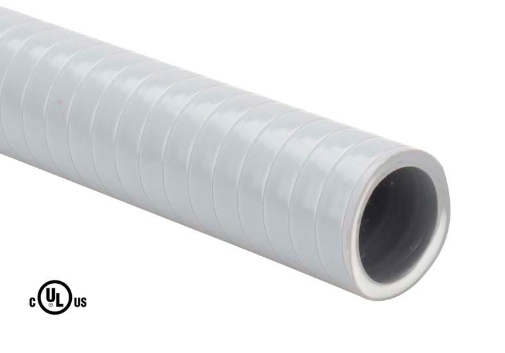Dec. 07, 2023
An electrical conduit serves as a dedicated pathway safeguarding electrical wires and cables across diverse environments. Choosing the appropriate conduit is crucial, aligning with the specific needs and criteria of your application.
While manufacturers commonly recommend conduit types, this article emphasizes the versatile applications of liquid-tight flexible metal conduit. It finds utility in environments susceptible to moisture or wet conditions, areas exposed to corrosive elements, settings prone to dust and dirt accumulation, and various outdoor settings.
Wet and Moist Environments
Liquid tight conduit and fittings are specifically designed to keep wires and cables free of liquid or moisture. Humid, damp or wet environments that require cabling are ideal areas to use liquid tight conduit. Prominent instances encompass car wash facilities, water management plants, and food and beverage processing units where regular equipment hosing is essential. Liquid-tight conduit guarantees both public and employee safety while extending cable lifespan and averting electrical malfunctions when appropriately employed.

Protecting Cables from Corrosion and External Elements
Liquid tight conduit proves to be an excellent solution for environments frequently exposed to corrosive elements. Its capability to repel moisture and seal off detrimental substances that could degrade wires and cables makes it an optimal choice. This feature is particularly advantageous for applications found in HVAC units, chemical facilities, and other areas prone to corrosive substances.
Diverse External Applications
Electrical installations exposed to the external environment can potentially encounter various issues. UV rays and outdoor elements have the potential to cause breakage and other forms of damage. Implementing liquid tight flexible metal conduit serves as a protective measure, shielding cables and wires from sun exposure, extreme temperatures, moisture, and other outdoor elements. This safeguarding prolongs their lifespan and prevents damage, ensuring sustained functionality.
Protecting Against Dirt and Dust in Industrial Settings
In industrial environments prone to dirt, dust, and minute particles, safeguarding wires and connections becomes crucial to prevent short circuits and equipment malfunctions. Industries like agriculture, textile plants, wood/pulp/paper mills, and similar sectors greatly benefit from the use of sealed, liquid tight conduit, which effectively shields against dust and particle intrusion.
An additional advantage of flexible metal conduit lies in its flexibility. Unlike rigid conduit, flexible metal conduit offers easy bending, making it an ideal choice for applications where installing rigid conduit would pose challenges.
Liquid Tight Flexible Metal Conduit by Anamet Electrical
Flexible and liquid tight conduit not only boasts inherent flexibility in design but also in its diverse applications. Its protective features guard against liquid exposure, corrosive elements, dust, and physical damage, presenting a comprehensive solution for wire protection in various industrial settings.
Conclusion
Liquidtight flexible nonmetallic conduit is typically used in situations where protection from liquids, such as water or oil, is necessary for electrical wiring. It's commonly employed in areas where there's a risk of exposure to moisture, like outdoor locations, wet or damp environments, or where the wiring needs to be flexible and movable. This conduit provides a degree of protection against water and other liquids, safeguarding the electrical wiring within.

















